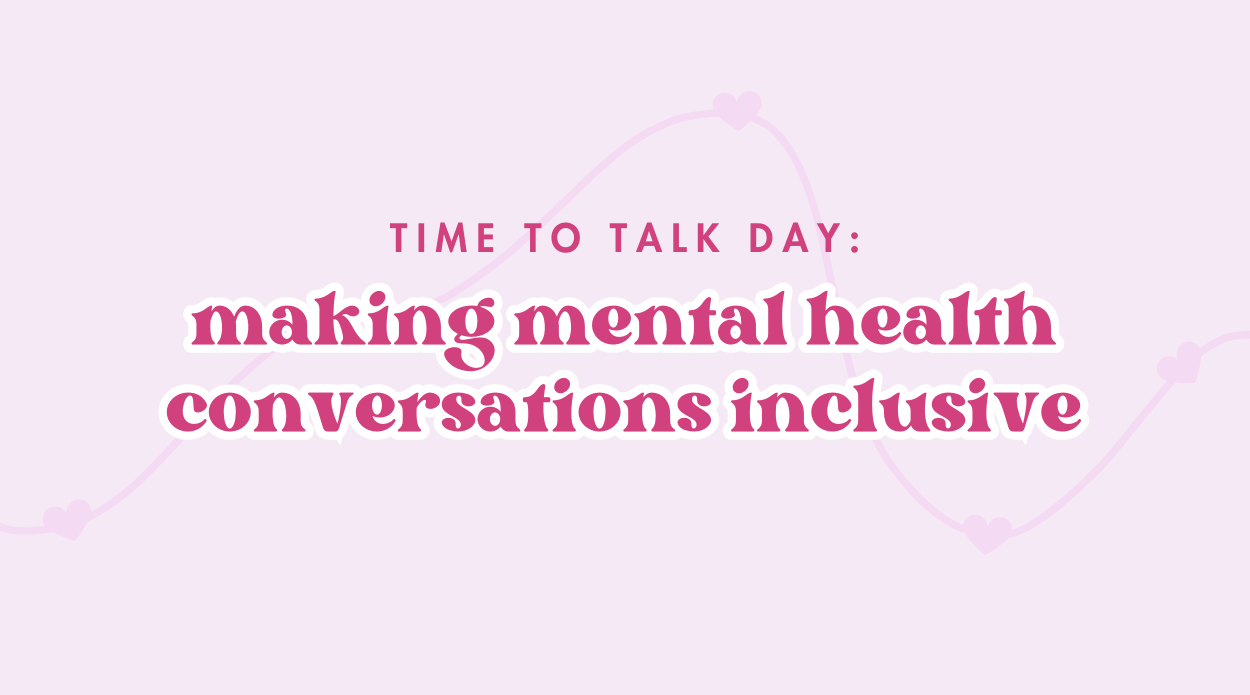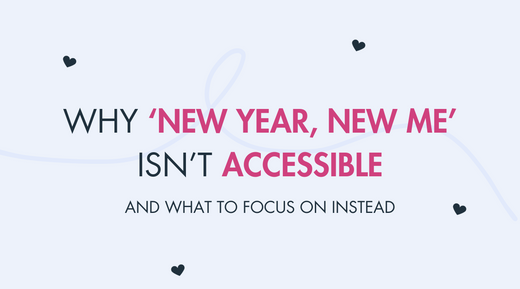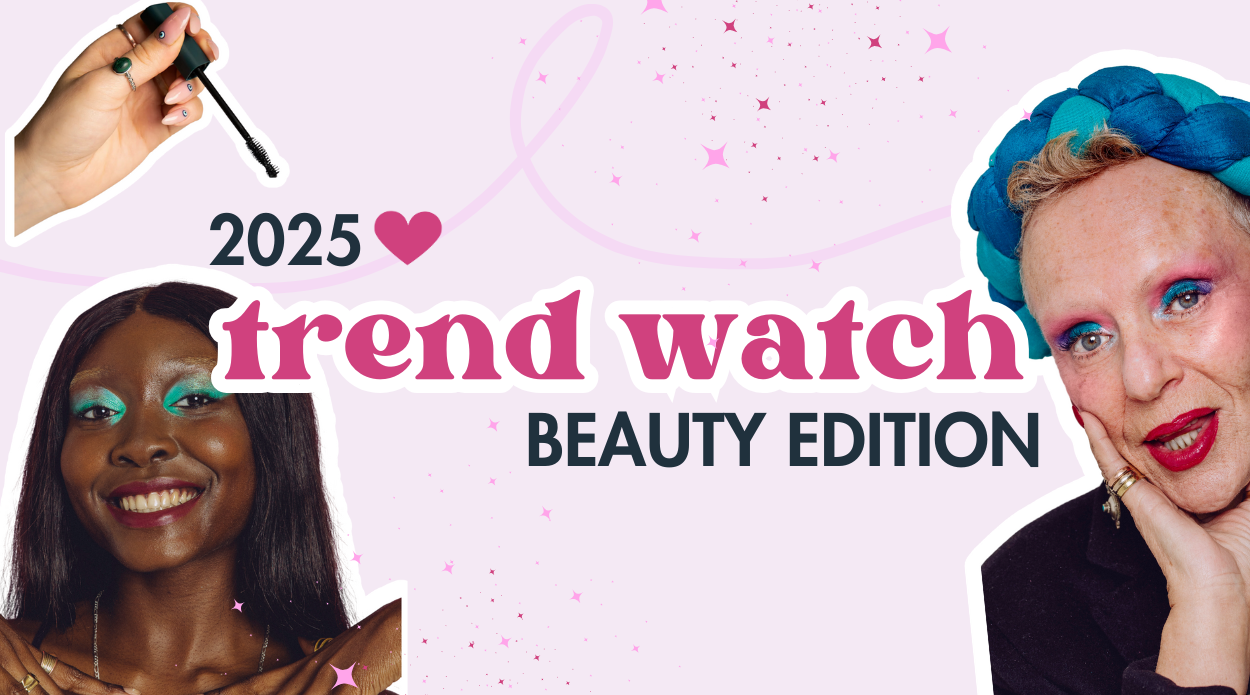It’s no secret that people with disabilities have been largely underrepresented in society and in the beauty space. This lack of representation sends a harmful message that beauty is limited to a narrow definition of 'perfection’, this is so wrong. Humans are beautiful and everyone has the right to look and feel our best even on our worst days.
We’ve seen many adverts, fashion shows, and beauty product launches that choose to disregard the disabled community. However, we make up around 15% of the population, which is higher than any other minorities. This needs to be reflected in the beauty world!
Recently, there has been a slight increase in disability representation in the beauty world but there’s still so much more for us to address. A lot of brands still include disabled individuals in their campaigns in a tokenistic manner, sometimes even despite selling non-accessible products. Here is what we think needs to happen to see better inclusivity in the beauty space.
Ignoring Disabled Narratives
Although times are changing and there are some improvements to be celebrated, there still isn’t much of a space for disabled representation in the beauty world. The most popular model is still a skinny, white, able-bodied woman.
Ads and campaigns are notorious for giving the stage to able-bodied people, which sends out a really negative message to those like Millie, who aren’t. British Vogue recently launched its first Disability Talent Cover, which starred Ellie Goldstein and Aaron Rose Philip. Although it is obviously fantastic news for the disabled community, it is disheartening that we have had to wait until 2023 for it to happen.
Representation is very important. What people see in the media can shift public opinion for the better and improve the understanding and appreciation between communities. If we see better representation of disabled people, we are more likely to be treated with respect in the real world. Discrimination and bigotry normally come from ignorance, which is why showing an accurate representation of the population is so important, in the media and everywhere else.
Millie experienced discrimination herself when she applied for an agency role at a well-known makeup counter. Despite her years of experience and her skills, she didn’t get the position because the company's dress code would interfere with her health.
She explains her experience in the video below.
Stories like Millie’s are so common because the beauty spaces aren’t as accessible as they preach. It is sad that so many people cannot benefit from the therapeutic properties of makeup because of the lack of accessibility in the beauty world. When it is not unachievable dress codes, it's non-accessible websites, narrow shopping aisles, or counters that are out of reach...
The Representation We Need
We want (and need) to see more campaigns that include models of all abilities, sizes and races.

Our Makeup Therapy Palette launch shows that it is very much possible, even for a small brand, to show a wide range of genders, ages, races and abilities in a beauty campaign. If Human Beauty can do it, the multi-million businesses in the beauty world can too.
We shouldn’t have to beg for disability representation in the beauty space. ‘Accessibility shouldn’t be a big deal, but a given for everyone.’ As best said by Issac in the latest season of Sex Education. Disabled people shouldn’t have to constantly ask and fight for their basic needs to be finally met.
We’ve been bingeing the last season and it was so good to see the range of representation throughout the show. It was so refreshing to see a situation of non-accessibility being shown on such a big show! These are the type of allies that promote change, and the type of people we want to see more of!
The world is already complicated enough, but extra barriers that exclude people with disabilities makes it so much worse. There’s enough to worry about in the world (regular everyday stuff), and not being able to get to class because there is no way for you to access it shouldn’t be one of them.
The Curb Cut Effect
Surprise! Making the beauty industry accessible for disabled people actually benefits everyone. The curb cut effect is the name given to the idea that although accessibility is necessary to disabled people, it is most of the time helpful as well to abled people. For example, our Liquid Confidence Mascara has a square tube, which makes it easier to grip and open for those with mobility issues. But the tube also prevents it from rolling over, which is helpful to anyone, no matter your ability level.
@jac.rose8 #stitch with @Shae #curbcuteffect #accessabilitymatters #accessability #universaldesign #disabilitytiktok #occupationaltherapy #occupationaltherapist #accessabilityawareness #cerebalpalsyawareness #cerebralpalsystrong ♬ original sound - Jacqueline
The curb-cut effect applies to representation as well! Better representation leads to a better understanding of the people around us, and a more diverse society.
We're all about smashing stereotypes, celebrating differences, and promoting inclusion. Remember, it's not just about showing up; it's about breaking down the barriers and ensuring that everyone has a seat at the table. Disability representation is another step toward us creating a truly inclusive beauty space.
At Human Beauty, we do believe that brands and industries hold the power to bring better inclusivity and accessibility to these worlds. This is why Millie Flemington-Clare, our founder, often takes to share her insights and experiences about her journey being a disabled makeup lover.
On October 27th, Millie had the opportunity to be the (un)official representative of the disabled community at this year’s British Beauty Week, where along with incredible minds like Sharon D. Lloyd and Joseph Harwood, she was able to explore the topic of better accessibility in the beauty space in front of professionals of the industry.
Creating accessibility is a continuous journey for brands, but by engaging with diverse voices and making small but significant changes, we can slowly but surely make a significant change in this industry.





